Many of us find ourselves facing some amount of stress, trying to keep up with busy work schedules, social obligations, and family dynamics. We may be under financial constraint, trying to keep addictive or unhealthy tendencies at bay, or struggling with feelings of isolation and loneliness. Pretending all is well while fulfilling responsibilities is a challenge in itself. Luckily, we have so many wonderful calming herbs allies to help our bodies adapt to the effects of stress.
Herbs, especially those with nervine and adaptogenic properties, can offer us both emotional and physical support during trying times. Here are 8 herbs that help put our hearts, minds, and nervous systems at ease.
Gentle Calming with Lemon Balm
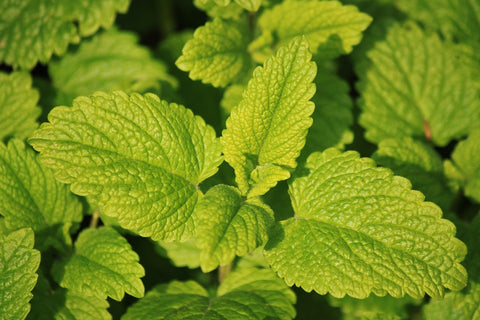
A tasty member of the mint family, Lemon Balm is a nervine herb, meaning it helps to support the nervous system. It is gently calming and will help with nervousness, mild anxiety, and indigestion, for it is also carminative. The scent and taste alone are mood boosting with sunny citrus notes, as its name suggests. Lemon Balm is safe to use with kids and the elderly. It can also be used in cases of fever as a cooling diaphoretic. Lemon Balm can be used as a tea, tincture, syrup, and works well in baking and cooking.
Treating Insomnia with Skullcap

Another calming herb with nervine properties, Skullcap is wonderful for easing muscle tension associated with stress and anxiety. It works to relieve muscle spasms and can also be useful in cases of sudden onset anxiety and panic attacks. Skullcap is also helpful in cases of insomnia, when sleeplessness is due to an overactive mind. It is a soothing ally to those who are going through periods of prolonged stress and feel their nerves have frayed. Skullcap makes a great nourishing tincture and can be used as a tea as well.
Ashwagandha for Chronic Stress
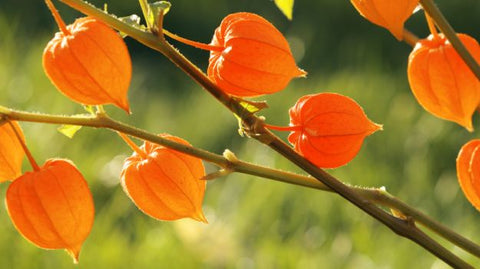
Ashwagandha is a wonderful adaptogenic root, popular in the Indian tradition of Ayurveda. Herbs classified as adaptogens help the body adapt to the harmful effects of stress by working to harmonize responses and functions in a non-specific and synergistic way. Ashwagandha has been proven to regulate cortisol levels, reduce inflammation, and repair oxidative damage to cells. If taken before bed, it can also promote restful sleep. Ashwagandha becomes more effective when taken over a longer period of time, so it’s a great remedy for chronic stress. It often comes in powder form, which can be added to food and drink, but it’s also fine to take as a capsule or decoct and drink as a tea.
Holy Basil for Invigorating Mind and Heart
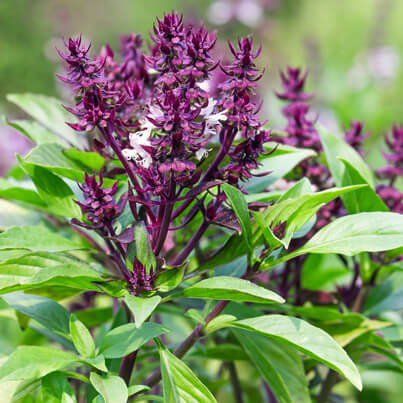
Holy Basil, or Tulsi, is another very popular and calming herb in Ayurvedic tradition. Related to culinary basil, and a member of the mint family, it benefits digestion and can be used in cooking as well as medicinally. Holy Basil boasts adaptogenic properties as well as being anti-microbial, anti-oxidative, analgesic, immunomodulating, and blood sugar balancing. It is also thought to invigorate the heart and mind while relaxing the body. The herb is worshipped in Hindu culture, where it is common that every household has a plant growing. Many drink Tulsi tea every day, and this is its traditional preparation, but it can be used in a tincture or capsule form, too.
Reishi the Medicinal Mushroom
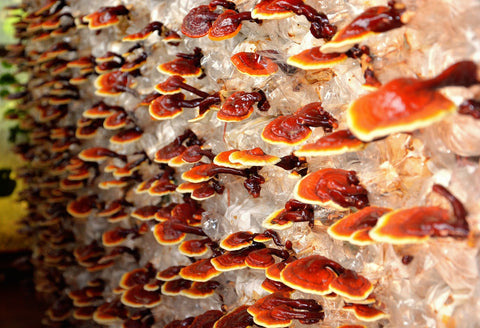
Reishi – A medicinal mushroom with adaptogenic properties, Reishi has long been revered for its myriad health benefits in Japan and China, and is an integral part of Traditional Chinese Medicine (TCM). Reishi is perhaps the most immune system-enhancing adaptogen, and has additional stress-calming, heart-opening, and mind-centering qualities. This treasured mushroom is also a potent liver tonic and helps to protect the body from free radicals, inflammation, bacteria, and oxidative damage. Reishi works best when taken over a prolonged period of time, and can be consumed as a tea decoction, powder, or tincture.
Hawthorn for Heart Healing

Hawthorn – Hawthorn is the ultimate, adaptogenic medicine for the heart. It is a premier cardiovascular tonic, with a spectrum of complex flavonoids that work to support the circulatory system. It’s been used traditionally in European medicine to treat a wide variety of heart weaknesses and diseases. On an emotional level too, Hawthorn is indispensable when dealing with grief, whether it’s life-long trauma or acute loss and anguish. It’s also beneficial to the digestive system and works wonders on frayed nerves and an overtaxed stress response. The fruits, flowers, and leaves of Hawthorn can be used in preparations, and it is best used as a tea, tincture, or flower essence.
Blue Vervain, Magic Herb of the Druids
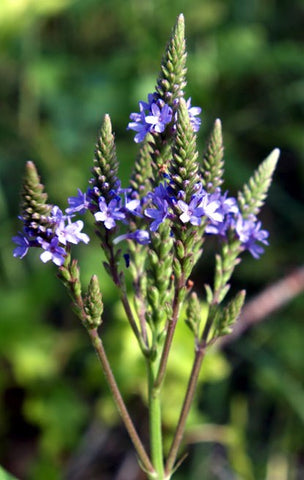
Long considered a magic herb by the Druids, Blue Vervain is the perfect nervine for Type A personalities! Blue Vervain is an extremely bitter herb, useful for easing tension and spasms, especially in the head, jaws, neck, and shoulders. Those suited for Blue Vervain often have a hard time relaxing mentally due to anxiety that their work and lives be “perfect” and this reflects in the muscles—jaw clenching, rigid neck, etc. It’s also a powerful digestive stimulant, and has an overall relaxing effect on the muscular system. Since it is so bitter, it is best taken as a tincture.
Chilling Out with CBD
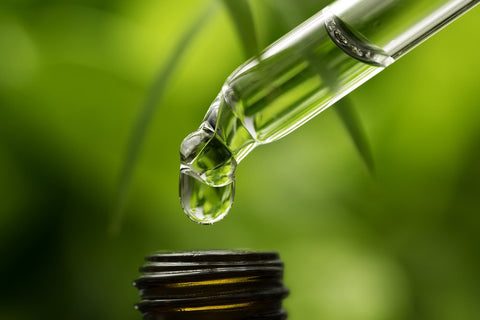
A non-psychoactive constituent from Hemp and Cannabis plants, CBD oil has been shown to be a very useful remedy for stress, inflammation, and pain management. Though not an adaptogen or a nervine, it works on the central and peripheral nervous system, helping one relax from the sympathetic “fight or flight” stress response to a parasympathetic “rest and digest” state. CBD also boosts overall mood, is anti-oxidant, anti-convulsant, and has cancer fighting and neuro-protectant properties.
These herbal allies (among many others!) can help us to overcome periods of stress, anxiety, and turmoil, allowing us to be present and enjoy our lives. In addition, it’s helpful to incorporate other aspects of self-care into your routine in addition to calming herbs. Things like exercise, meditation, self-massage, connecting with friends and loved ones, and engaging in creative or community-centric activities also have a positive effect on mental and physical health. When all else fails, know you can always seek professional therapeutic support.
